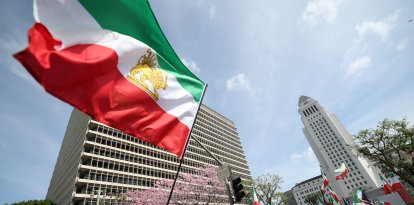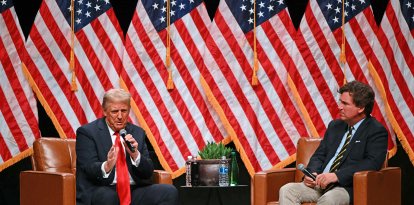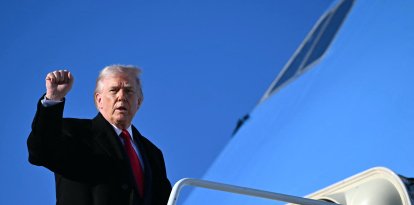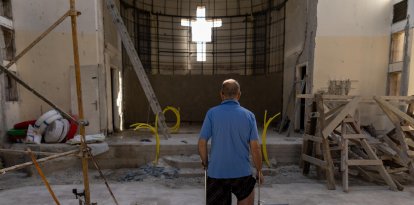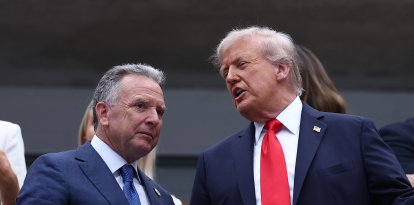Iran cancels Saturday's nuclear negotiations with the USA
"Depending on the U.S. approach, the date of the next round of talks will be announced," an official in Tehran said.

Mohammad Eslami, jefe de la Organización de Energía Atómica de Irán
Iran is postponing its participation in a fourth round of indirect talks with the United States that was set to take place on Saturday, Reuters reported on Thursday, citing an unnamed senior official in Tehran.
“U.S. sanctions on Iran during the nuclear talks are not helping the sides to resolve the nuclear dispute through diplomacy,” the official said of the Islamic Republic’s decision to cancel the negotiations in Rome.
“Depending on the U.S. approach, the date of the next round of talks will be announced,” the official stated, according to the wire agency’s report.
Oman, which hosted two previous sessions of the U.S.-Iran talks in Muscat, had said on Thursday that the next round of nuclear talks planned for May 3 would be rescheduled for “logistical reasons.”
However, a source familiar with the matter told Reuters that Washington had not confirmed its participation in the fourth round of talks in Rome.
Earlier on Thursday, President Donald Trump warned that all purchases of Iranian oil must stop, threatening to impose sanctions on “any country or person who buys ANY AMOUNT of OIL or PETROCHEMICALS.”
“ALERT: All purchases of Iranian oil, or petrochemical products, must stop, NOW!” Trump wrote in a post on Truth Social. Anyone who does business with Tehran “will not be allowed to do business with the United States of America in any way, shape, or form,” he added.
Following the third round of talks in Muscat on April 26, both sides cited “serious progress” but warned that significant disagreements remained.
Iranian Foreign Minister Abbas Araghchi called the talks “serious and focused,” noting that written proposals had been exchanged and that discussions had moved to more detailed issues. However, he urged “extreme caution,” emphasizing that key differences persist.
In an interview with Iranian state television, Araghchi acknowledged, “We have very deep disagreements. Can we reach an agreement? I’m hopeful, but also very cautious.”
U.S. officials described the discussions as “positive and productive,” and confirmed at the time that the talks would continue in Rome on May 3.

World
US and Iran have 'productive' round of nuclear negotiations, agree on next meeting in Europe
Emmanuel Alejandro Rondón
A major sticking point remains Tehran’s insistence on its right to enrich uranium domestically, a capability that would move the regime closer to nuclear weapons production. U.S. Secretary of State Marco Rubio has clarified that Washington would only accept an Iranian civilian nuclear program that utilizes imported nuclear fuel.
Another disagreement centers around Iran’s ballistic missile program, with the U.S. pushing to include missile restrictions in any deal.
Israeli Prime Minister Benjamin Netanyahu told the JNS International Policy Summit in Jerusalem on Sunday that Israel will only agree to a nuclear deal that eliminates Tehran’s capacity to enrich uranium.
The only way to prevent Iran from building a nuclear weapon is to dismantle “all the infrastructure,” he said, adding, “That is the deal.”
Israel, he continued, “cannot live with anything short of that—anything short of that could bring you the opposite result, because Iran will say, ‘All right, I won’t enrich, wait, run out the clock, wait for another president, do it again.’” This, the prime minister said, was “unacceptable.”
The prevention of Iran’s development of ballistic missiles should also be addressed, he continued.
“I think these are the two requirements. I said to President Trump that I hope that this is what the negotiators will do,” Netanyahu said. “But I said one way or the other, Iran will not have nuclear weapons.”















